WhereScape is thrilled to invite you to...
Revolutionizing Day-to-Day Operations: The Power of Automated Data Integration
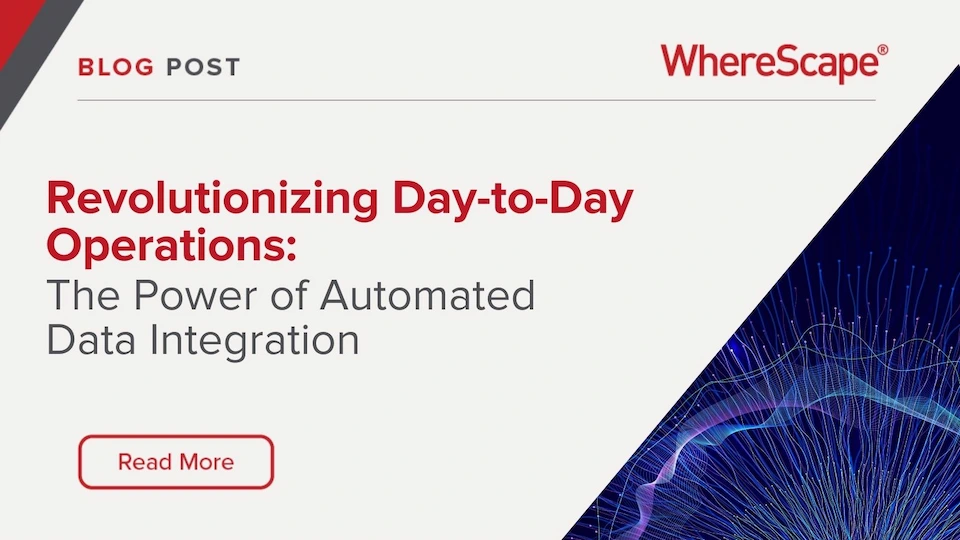
The Transformational Role of Automation in Data Management
Across industries and business stages, organizations of all types manage data in their daily operations. Whether that data entails patient appointments and reminders in a healthcare clinic, student performance metrics in a school, or inventory levels in manufacturing, it is ever-present and crucial to efficient business processes.
Automation can transform data management by making data-related tasks faster, more accurate, and less labor-intensive. From organizing and sorting data to pulling actionable insights from large data sets, many processes can be streamlined and improved through the use of high-quality data warehouse automation tools.
Streamlining Data Workflows
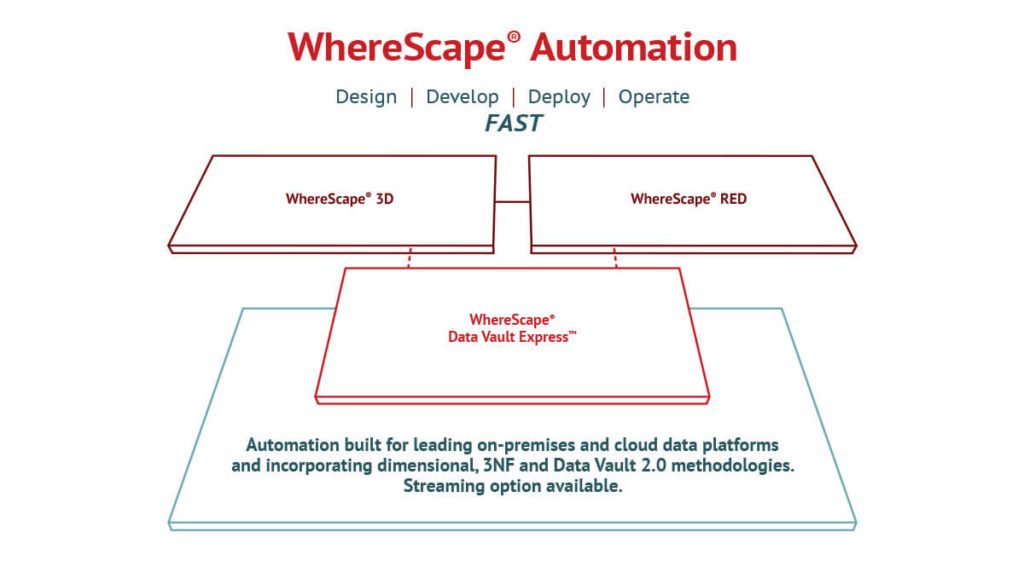
Data workflows make up the core processes of any organization. From collection and processing to storage and analysis, data management workflows allow for regulated access, helpful organization, and actionable insights. Data processing automation tools streamline these workflows to make them more accurate and efficient.
From Disparate Sources to Unified Insights
Without the proper tools, many organizations suffer frustration, confusion, and costly downtime due to sporadic data workflows and disparate storage practices. Data management tools like WhereScape facilitate automated data integration, combining information from multiple systems into a single, coherent view.
For example, a healthcare organization might begin with patient data stored in electronic health records, appointment systems, and billing platforms. To make matters more complex, patient data also requires rigorous data protection to keep all parties safe and adhere to regulations. With automated data integration, the clinic can merge patient data to create comprehensive patient profiles. This integration paves the way for better patient care, more efficient operations, and cost savings while data governance automation keeps all practices in adherence to regulatory requirements.
Enhancing Development and Deployment Speed

Nowadays, business moves fast. Regardless of the industry, technological advancements and changing customer needs require flexibility and quick pivots from every organization. Enterprise data solutions that allow for widespread automation make it possible to stay strategic and get ahead of the competition through the use of integrated data insights.
Rapid Development Cycles for Agile Responses
Organizations can leverage data processing automation to facilitate the rapid launch of new systems and features. For example, manufacturing organizations can use enterprise data solutions to quickly integrate production data and customer data to enable faster supply chain adjustments. This swift response to a rapidly changing market allows businesses to jumpstart innovation and gain a competitive edge.
Ensuring High Data Quality and Consistency
In addition to streamlining workflows and allowing for quick pivots, enterprise data solutions also reduce errors in the data handling process. Even the most skilled and careful data teams will occasionally make a mistake. Automated data integration shrinks the room for error and ensures consistency across data sources.
The Foundation of Reliable Decision-Making
Without data you can trust, making informed strategic decisions is next to impossible. All efforts to integrate and analyze data become almost meaningless if you can’t be certain that the data itself is accurate.
Data processing automation ensures data integrity by continuously validating and updating information. This level of reliability supports strategic planning and accurate forecasting.
Scaling with Organizational Needs
As businesses grow, so do their data management needs and responsibilities. Scaling manual data management teams can be extremely costly, stifling organizational growth and slowing down overall advancement. Automated enterprise data solutions allow for steady, seamless growth.
Adaptable Solutions for Growing Data Demands
With a broad suite of adaptable solutions and tools for every business need, WhereScape allows for seamless expansion. By standardizing workflows and integrating with a wide range of supported platforms, WhereScape puts sophisticated data automation within reach for organizations of all sizes.
Optimizing Operations and Reducing Errors
Manual data operations are time-consuming and prone to mistakes. Delegating repetitive and tedious tasks to skilled data staff is a frustrating use of time and resources that can slow down overall operations and hurt morale. Data processing automation frees up skilled staff for more strategic work while also improving data accuracy.
Minimizing Manual Efforts and Improving Efficiency
Using all assets, resources, and staff hours to the fullest is a key component of optimizing efficiency. Data automation can reduce administrative burden and pave the way for smoother operations and a better overall experience for staff and stakeholders.
Fostering Collaborative Data Management
Especially for growing businesses, thinking ahead to create processes for smooth and collaborative data management is critical. Efficient data governance automation solutions allow teams to manage data collectively without compromising the quality, security, and availability of any data set.
Centralized Platforms for Enhanced Governance
Automated data integration allows teams to centralize data on unified platforms, supporting collaborative data management and facilitating easier access. For example, a manufacturing company could use automated integration to create a successful data fabric and ensure that both production and procurement teams can access supply chain data at any time. These capabilities enhance coordination and decision-making for a more cohesive organization.
Accelerating Time-to-Value
WhereScape RED helps businesses shorten the data infrastructure development cycle by 80%. Instead of wasting valuable company time and resources on guessing games and tedious analytics processes, leverage powerful tools to accelerate the transformation of raw data into insights you can act on.
From Raw Data to Actionable Insights Rapidly
Data is most valuable when it provides insights into current performance, developing trends, and key projections. With WhereScape, organizations can turn raw, disparate data into organized and actionable analytics that act as a guiding light. Make strides toward company goals and confidently meet changing market needs with rapid time-to-value.
Harnessing WhereScape’s Capabilities for Enhanced Data Automation
Reducing time-to-value, mitigating potential errors, and freeing up skilled staff for high-value tasks all move the needle in growing your company and reaching your organizational goals. Automated data integration tools are a key driver in achieving these business changes. WhereScape offers powerful tools for data automation, enabling businesses to streamline data integration processes from collection to analysis.
Revolutionize your daily operations with WhereScape. Request a demo today!
What Makes A Really Great Data Model: Essential Criteria And Best Practices
By 2025, over 75% of data models will integrate AI—transforming the way businesses operate. But here's the catch: only those with robust, well-designed data models will reap the benefits. Is your data model ready for the AI revolution?Understanding what makes a great...
Guide to Data Quality: Ensuring Accuracy and Consistency in Your Organization
Why Data Quality Matters Data is only as useful as it is accurate and complete. No matter how many analysis models and data review routines you put into place, your organization can’t truly make data-driven decisions without accurate, relevant, complete, and...
Common Data Quality Challenges and How to Overcome Them
The Importance of Maintaining Data Quality Improving data quality is a top priority for many forward-thinking organizations, and for good reason. Any company making decisions based on data should also invest time and resources into ensuring high data quality. Data...
What is a Cloud Data Warehouse?
As organizations increasingly turn to data-driven decision-making, the demand for cloud data warehouses continues to rise. The cloud data warehouse market is projected to grow significantly, reaching $10.42 billion by 2026 with a compound annual growth rate (CAGR) of...
Developers’ Best Friend: WhereScape Saves Countless Hours
Development teams often struggle with an imbalance between building new features and maintaining existing code. According to studies, up to 75% of a developer's time is spent debugging and fixing code, much of it due to manual processes. This results in 620 million...
Mastering Data Vault Modeling: Architecture, Best Practices, and Essential Tools
What is Data Vault Modeling? To effectively manage large-scale and complex data environments, many data teams turn to Data Vault modeling. This technique provides a highly scalable and flexible architecture that can easily adapt to the growing and changing needs of an...
Scaling Data Warehouses in Education: Strategies for Managing Growing Data Demand
Approximately 74% of educational leaders report that data-driven decision-making enhances institutional performance and helps achieve academic goals. [1] Pinpointing effective data management strategies in education can make a profound impact on learning...
Future-Proofing Manufacturing IT with WhereScape: Driving Efficiency and Innovation
Manufacturing IT strives to conserve resources and add efficiency through the strategic use of data and technology solutions. Toward that end, manufacturing IT teams can drive efficiency and innovation by selecting top tools for data-driven manufacturing and...
The Competitive Advantages of WhereScape
After nearly a quarter-century in the data automation field, WhereScape has established itself as a leader by offering unparalleled capabilities that surpass its competitors. Today we’ll dive into the advantages of WhereScape and highlight why it is the premier data...
Data Management In Healthcare: Streamlining Operations for Improved Care
Appropriate and efficient data management in healthcare plays a large role in staff bandwidth, patient experience, and health outcomes. Healthcare teams require access to patient records and treatment history in order to properly perform their jobs. Operationally,...
Related Content
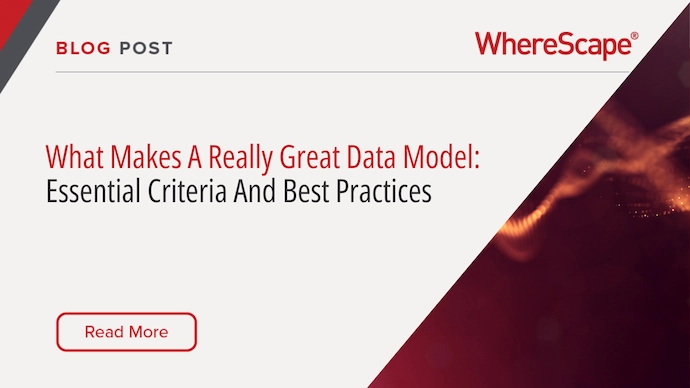
What Makes A Really Great Data Model: Essential Criteria And Best Practices
By 2025, over 75% of data models will integrate AI—transforming the way businesses operate. But here's the catch: only those with robust, well-designed data models will reap the benefits. Is your data model ready for the AI revolution?Understanding what makes a great...
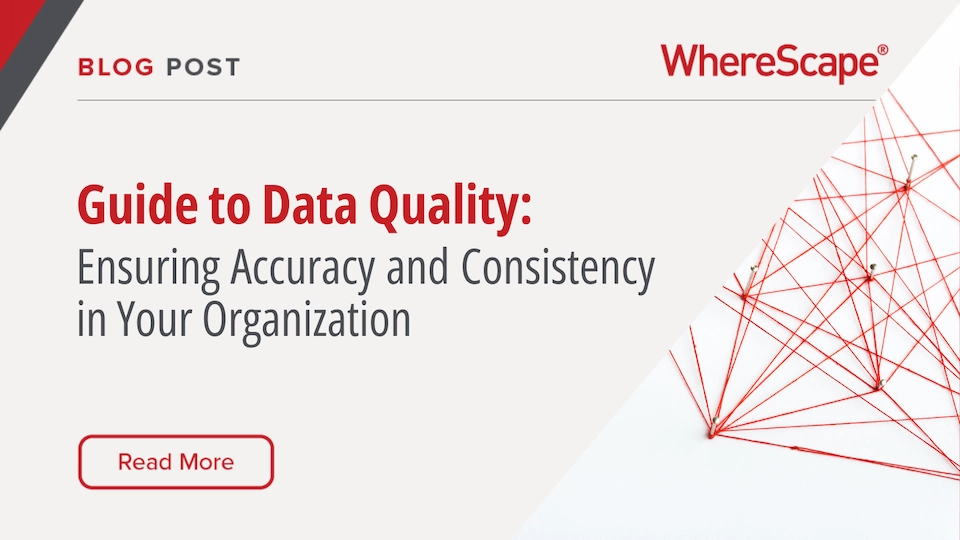
Guide to Data Quality: Ensuring Accuracy and Consistency in Your Organization
Why Data Quality Matters Data is only as useful as it is accurate and complete. No matter how many analysis models and data review routines you put into place, your organization can’t truly make data-driven decisions without accurate, relevant, complete, and...
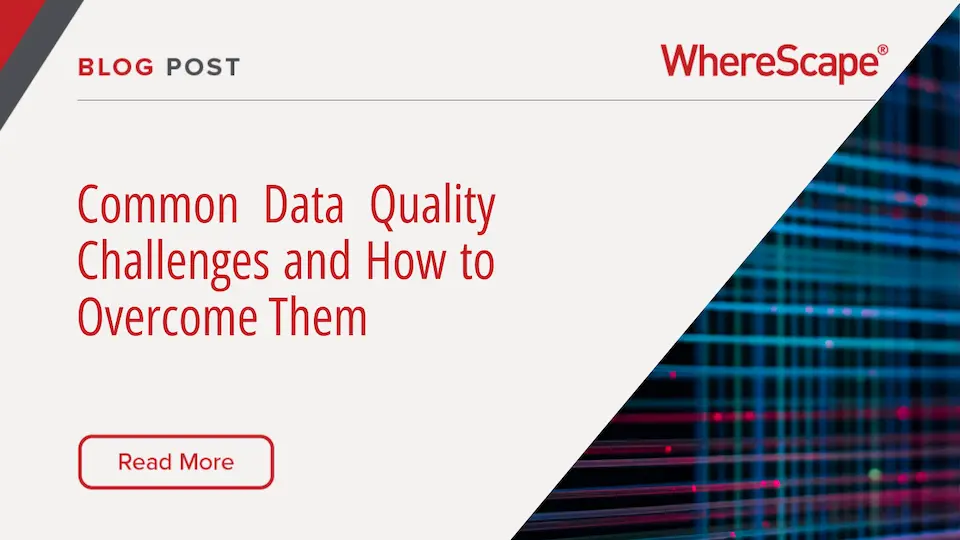
Common Data Quality Challenges and How to Overcome Them
The Importance of Maintaining Data Quality Improving data quality is a top priority for many forward-thinking organizations, and for good reason. Any company making decisions based on data should also invest time and resources into ensuring high data quality. Data...
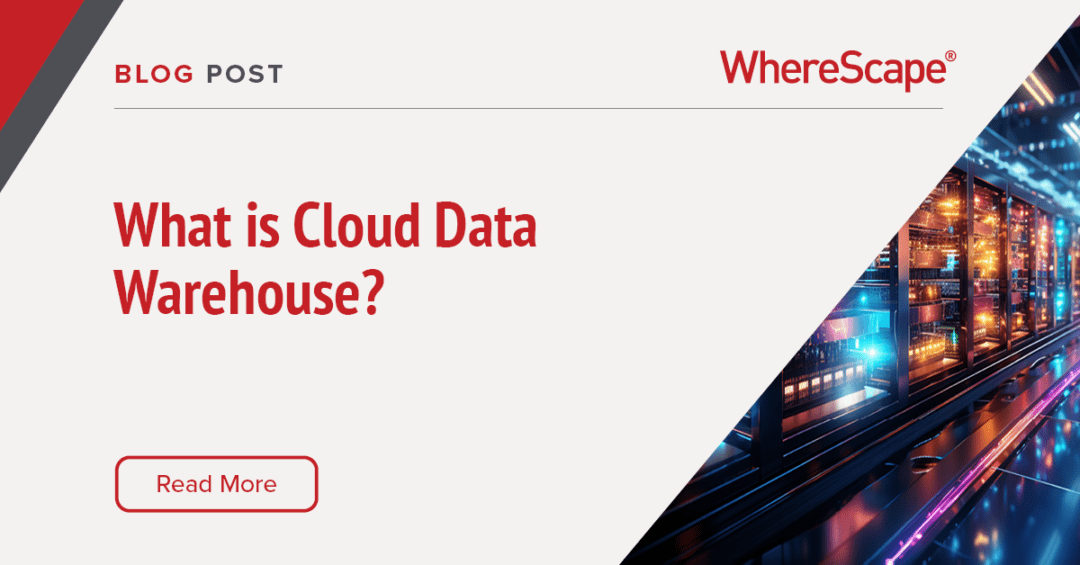
What is a Cloud Data Warehouse?
A cloud data warehouse is an advanced database service managed and hosted over the internet.

